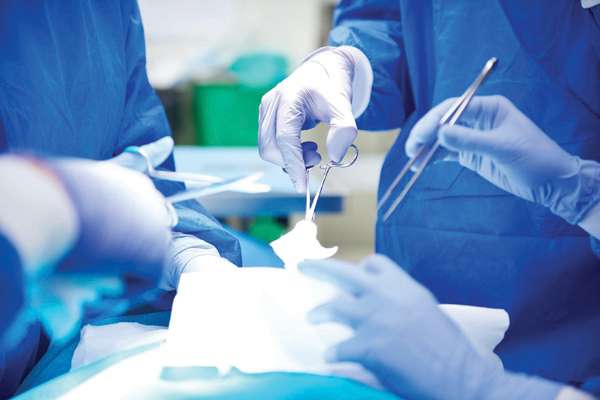Vaginal rejuvenation surgery is a beauty method that helps you regain your youthful age and confidence. However, in order to achieve the best beauty results, post-operative care plays a very important role. Together with Worldwide Cosmetic Hospital, let’s learn about the secrets to taking care of “her” during this period.
Wound care
The success of vaginal rejuvenation surgery depends not only on the surgeon’s expertise but also on proper post-operative care. That’s why Worldwide Cosmetic Hospital has designed an at-home care kit for post-vaginal surgery recovery, which includes:
At-home care kit contents:
- Post-operative self-care instruction sheet
- Feminine wash and saline solution
- Bandages, gauze, and daily sanitary pads
Wound self-care instructions at home:
- Use feminine wash after using the toilet.
- Use daily sanitary pads or dry liners to keep the wound dry. Change pads every 2-3 hours to prevent odor and reduce the risk of vaginal infection.
- Avoid soaking the vaginal area in water for the first 10 days.
- Do not wear tight clothing or anything too snug. This can not only cause discomfort but also odor and potential infection..
- Do not touch, scratch, or apply pressure to the vaginal area.

Follow-up appointments
Recovery Process:
- Normal walking after vaginal rejuvenation surgery.
- There may be minor bleeding from the wound, which can be absorbed with daily sanitary pads. If bleeding is heavy, you should go to the hospital to get checked immediately.
- For the first 1-2 days, there may be slight pain or discomfort in the vaginal area, which can be relieved with pain medication.
- Depending on each person’s constitution, there may be minor swelling which will gradually improve after 15 days and fully recover after 1 month.
Adhere to Follow-up appointments of the treating doctor:
- Stitches are usually dissolvable and do not require removal.
- Attend scheduled follow-up appointments: 01 week and 01 month after surgery.
- Seek immediate medical attention if any unusual symptoms occur (such as foul-smelling vaginal discharge, pus, wound opening, severe pain, etc.)
Exercise
Recommended:
- After 2 weeks: Light walking or gentle exercise for about 15 minutes daily to improve blood circulation.
- After 4 weeks: Begin pelvic floor exercises.
- After 6 weeks: Gradually resume more strenuous activities, avoiding overexertion.
Not recommended:
- Avoid heavy lifting (over 9 kg) and carrying children.
- Refrain from sexual intercourse: first 04 weeks.
- Avoid impact or pressure on the vaginal area.
- Avoid sauna, hot tub baths: 01 months.
Diet and Medication
Recommended:
- Drink plenty of water (2 liters/day).
- Eat green vegetables containing lots of fiber, fruits and foods rich in vitamins A, C, E such as green veggies, papaya, carrots, etc.
Eat foods that promote wound healing, like lean pork (steamed or boiled). - Supplement omega-3 fatty acids and healthy fats from sources like salmon and tuna.
- Drink unsweetened fresh milk.
- Take medications as prescribed by your Doctor.
Not recommended:
- Avoid drinking alcohol, smoking for about 5 weeks, and seafood for about 3 month.
- Avoid foods high in oil, spicy foods, sticky rice dishes, seafood, etc.
- Avoid foods that can cause pus and scarring, such as water spinach and beef.
- Refrain from consuming chicken, high-cholesterol foods, and soy sauce for about 1 month.
- Avoid fermented foods like pickled vegetables.
- Limit coffee, tea, lettuce, coconut water, drinks with stimulants.
- Avoid sexual intercourse for about 6 weeks.
We hope this information helps you understand the importance of post-operative care for faster healing and optimal results. However, to ensure safety, you should still choose reputable cosmetic facilities and highly skilled doctors to avoid dangerous complications later on.

 Tiếng Việt
Tiếng Việt
